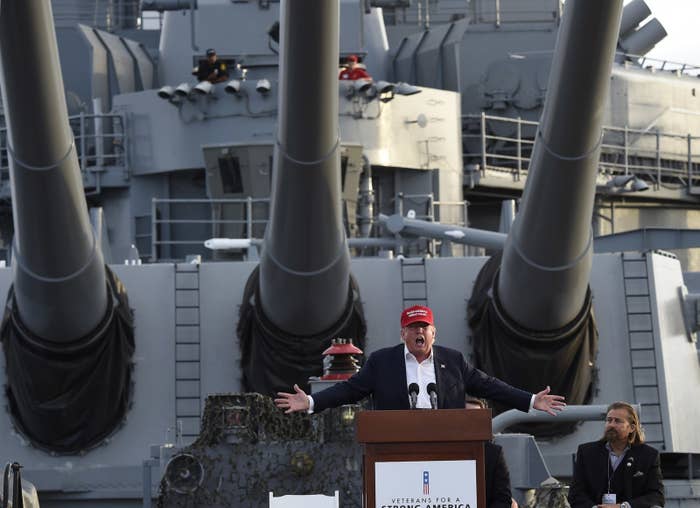
Donald Trump’s inauguration Friday could be only the first of many official spectacles of power during his presidency.
The president-elect suggested he wanted to embrace a tactic popular in places like Russia to showcase American strength — military parades.
“The military may come marching down Pennsylvania Avenue,” Trump said in a Washington Post interview published Wednesday. “That military may be flying over New York City and Washington, DC, for parades. I mean, we’re going to be showing [off] our military.”
The only problems: These spectacles are expensive and impractical, and often run counter to the American military’s ethos of showcasing its strength through force, not parades.
The US does not have a history of major military parades marching through its big cities, except to celebrate wartime victories. That is not a coincidence, military observers said, but a reflection of how the US sees its military and military culture itself.
The last time the US had a major parade for its military was in 1991, at the end of the Gulf War that liberated Kuwait from Saddam Hussein’s Iraqi forces. There was a parade a few months after the end of World War II, one a full year after the armistice of World War I, and two at the end of the Civil War — for the eastern and western theaters.
On Sept. 10, 1919, General John J. Pershing led 25,000 troops down New York City’s Fifth Avenue, in what the New York Times then called, “the last chapter” of New York’s “great military spectacles” from the war that left 38 million dead.
There is no Red Square in the US designed to showcase its soldiers, tanks, and missiles in force. And there is no US history of conquests around the world that demand a parade to signal their power to the world.
Iraq, under Saddam, held regular military parades in a show of force to his own citizens. Russia holds an annual parade on May 9 to commemorate the defeat of Nazi Germany in 1945, which is often used to reveal new weapons and capabilities. Two years ago, North Korea held a massive military parade to mark the 70th anniversary of the ruling Workers' Party.
Just because the US doesn’t hold parades doesn’t mean it fails to celebrate its military — at sporting events, hometown parades, fleet weeks, and several federal holidays. The US military already celebrates its role with the public via special groups like the Blue Angels flight team, military bands, and the parachutists who descend into stadiums before game-time. But Trump’s proposal seems more routine, larger, and much less subtle.
“We don’t need to celebrate the strength of our military year in and year out. Historically we are not a militaristic people,” Pete Mansoor, a history professor at Ohio State University and a military veteran, said. “If the message is we honor the service of our military, we already have representative in [smaller, regional] military parades,” like those on the Fourth of July, Veterans Day, and Memorial Day.
Practically speaking, a big parade like Russia’s would be difficult. There is not a stash of major hardware in New York or Washington for such an event. Even if enough military equipment could be shipped in to drive down the streets of the capital, “Have you ever seen what a tank does on the street?” Mansoor asked.
That is, it would be costly in terms of time, money, and road repairs. Hundreds of troops would have to be assigned to conduct an annual parade because, as Mansoor explained, “Nobody wants to mess up in front of the president.”
In preparation for the New York City Victory Parade of 1946, members of the 82nd Airborne Division reportedly trained for months.
Troops in the US military, unlike every military in the world, do not take an oath to a person but rather the ideas outlined in a document, the US Constitution. And that creates a culture that doesn’t call for public displays of loyalty but rather a force that should be heard but not seen.
And for the last 14 years, the US has been waging two major wars in Iraq and Afghanistan. “Who has time for a parade? We’ve been kind of busy lately,” one defense official observed.
